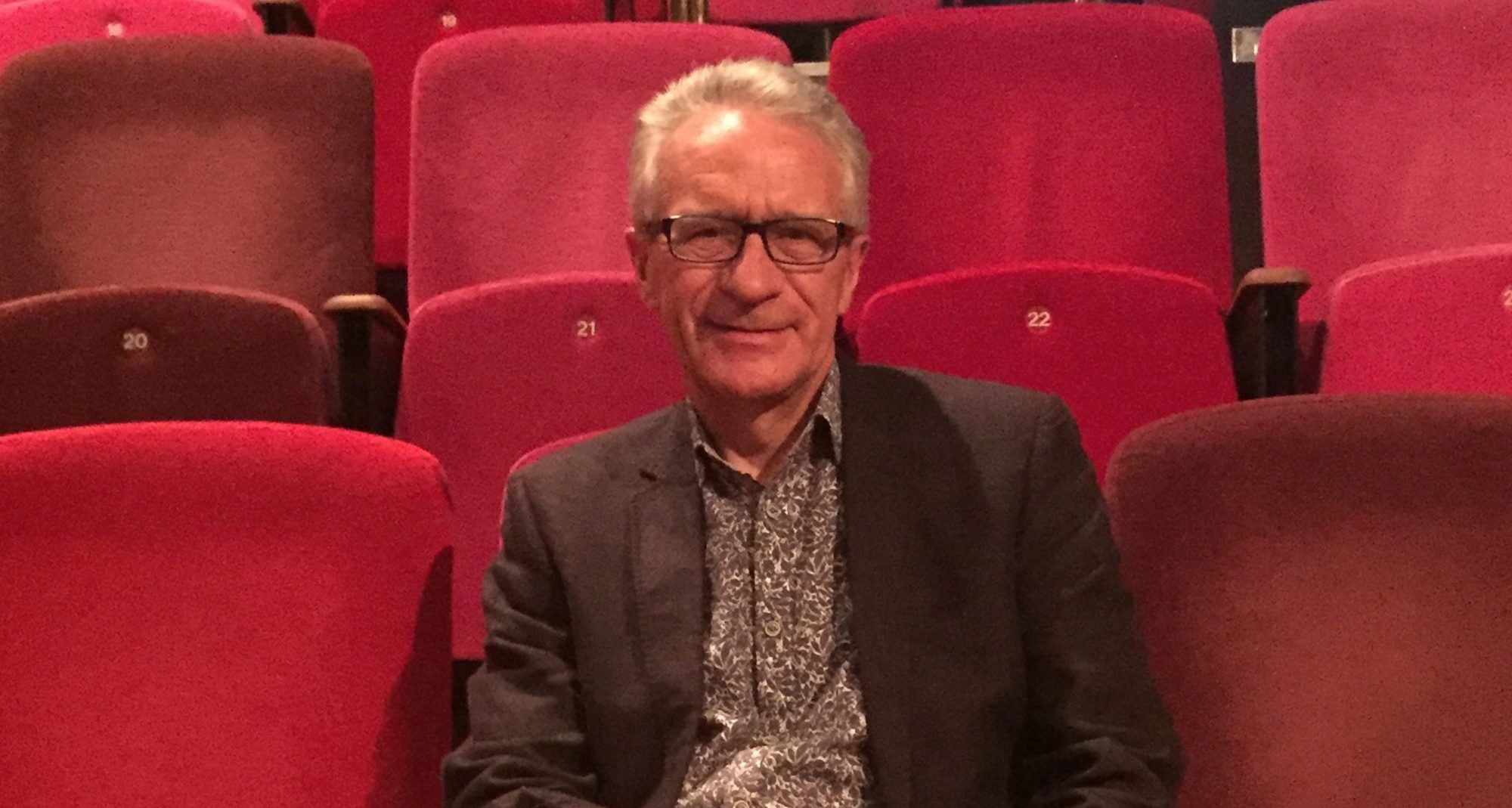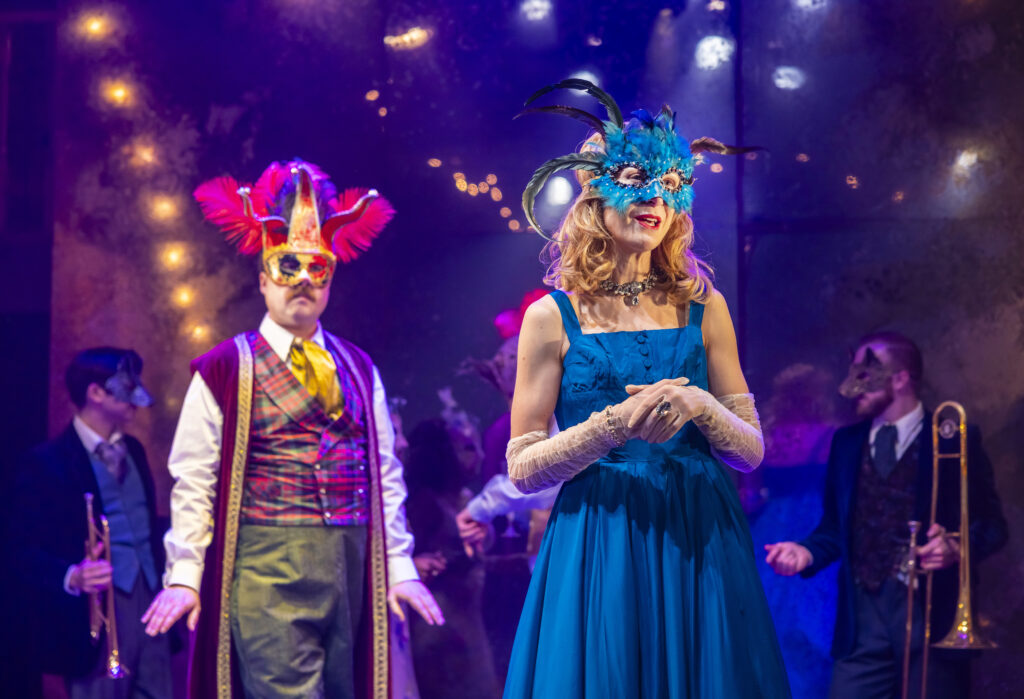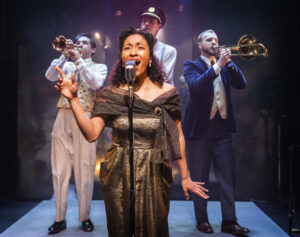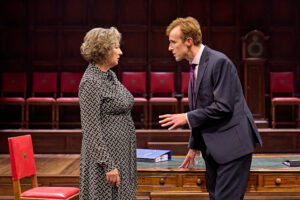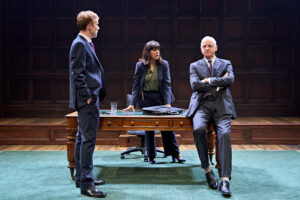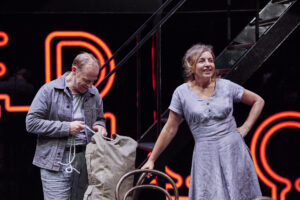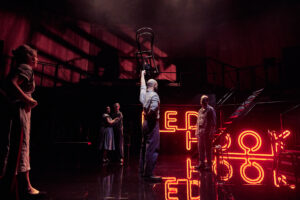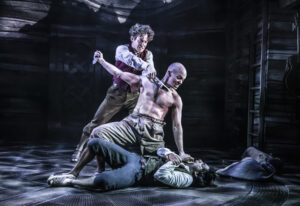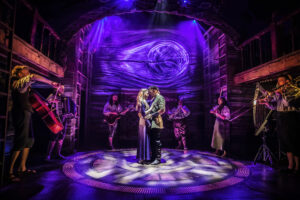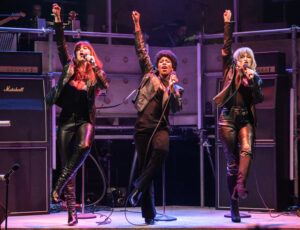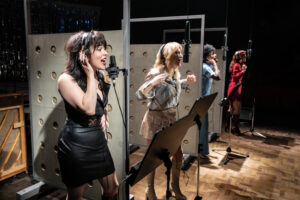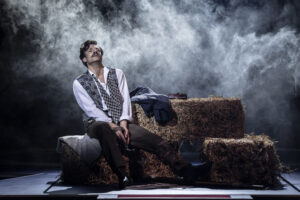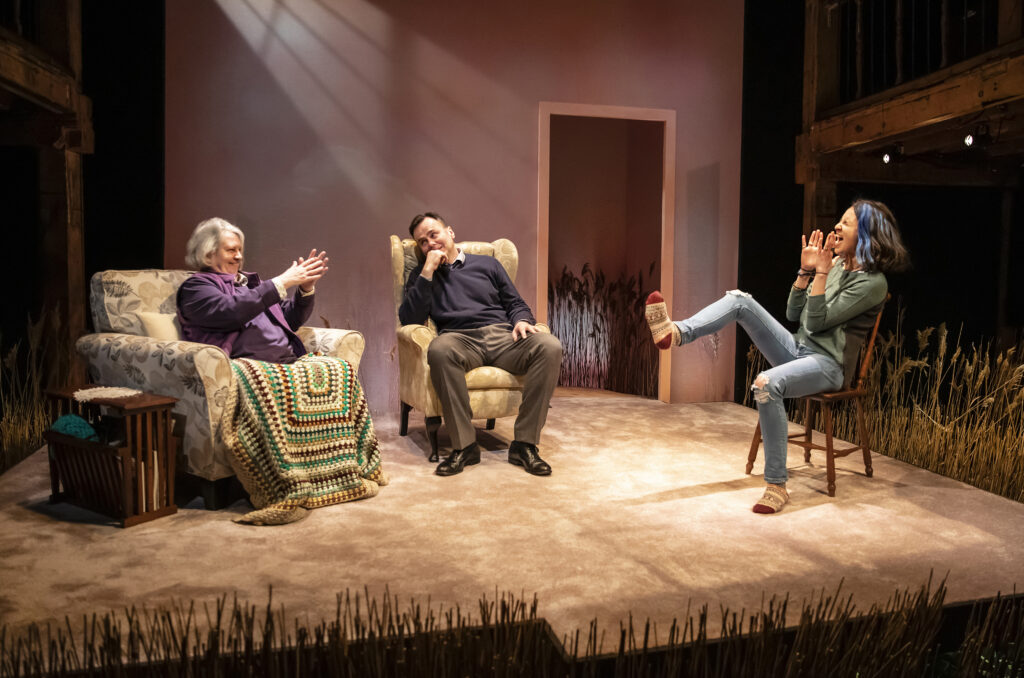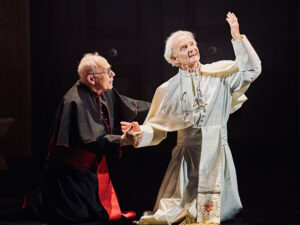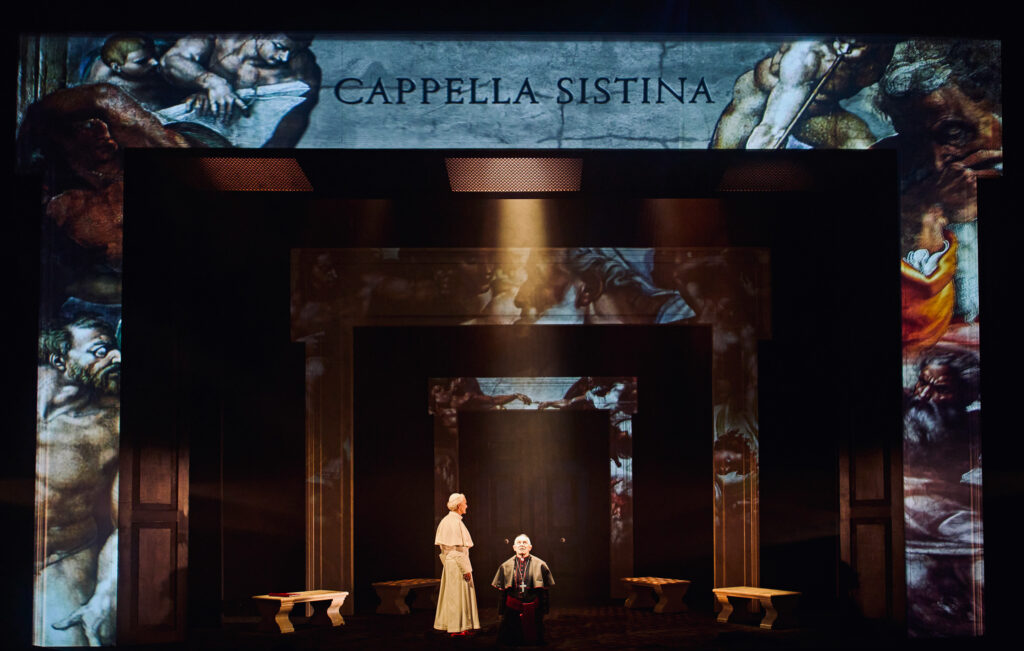James Graham brings Yosser Hughes to the stage
★★★★
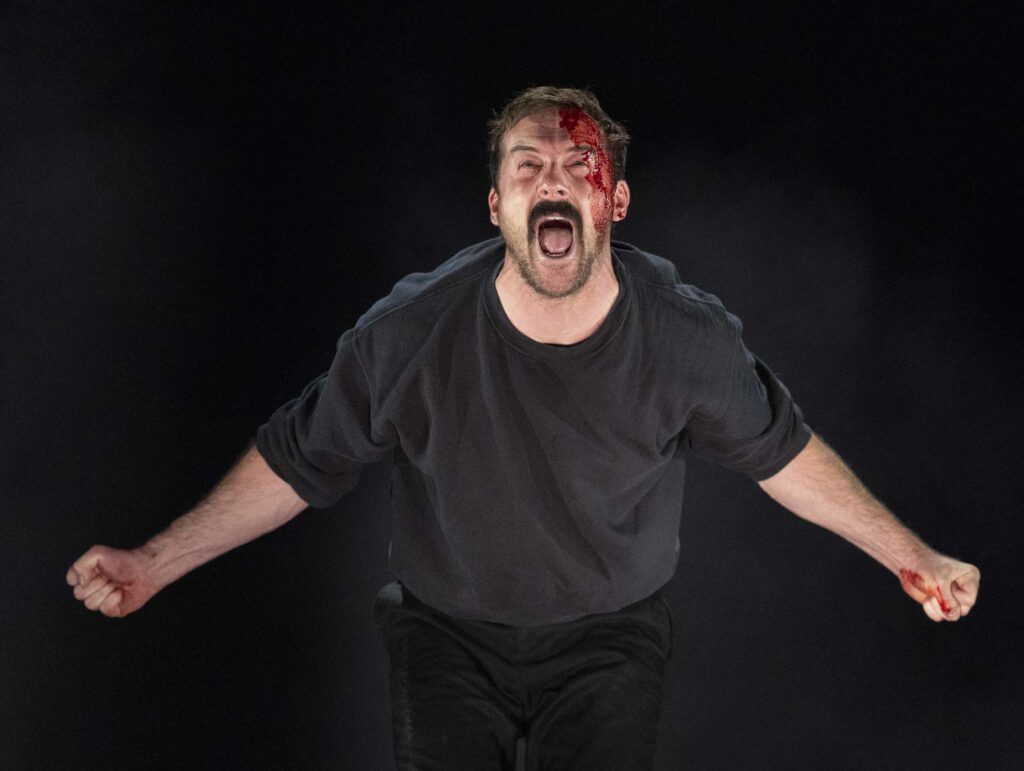
I wonder whether, in the normal way of things, James Graham, author of Dear England, or any other contemporary dramatist, would write a stage play about some men in 1980s Liverpool who have lost their jobs and commit benefit fraud? Possibly not, but then, this is Boys From The Blackstuff, a TV legend from the early 80s. So, how does it translate onto the stage? And was it worth the effort?
I wonder if you have even seen the TV series by Alan Bleasdale? And if you have, how much do you remember of it? (You can catch up with it on BBC iPlayer.) If you’re a fan, you may enjoy this version as an exercise in nostalgia. However, because you might not know the incomparable five-part TV series by Alan Bleasdale, I’m not going to compare this two hours and a bit play with it. Instead, I’ll consider whether it stands up as a theatrical drama in its own right.
The first act is very bitty. There’s far too much in the way of introductions and scene setting. We meet the five ‘boys’ but they appear in a series of fragmentary scenes. We don’t really get to know them. Certainly not well enough to care about their fate, which is inevitably to be caught by the benefit fraud sniffers.
What kept my interest during the first act was the production itself- the varying pace of Kate Wasserberg‘s direction, encompassing rousing ensemble singing, fast-moving crowd scenes, and moments of still sadness; the rusty industrial set by Amy Jane Cook; the video by Jamie Jenkin of black and white images of 1980s Liverpool projected at the back of the stage, so often returning to the swirling waters of the Mersey, which was the source of Liverpool’s glory years as a port.
But the docks are already in decline, our heroes are not dockers but roadworkers, or rather they were. We find out how they brought some of their problems on themselves, and there are many reasons, including greed and selfishness, why they don’t appear to deserve our sympathy. The emotional engagement only picks up when a tragedy occurs. The scene when someone falls from high up is performed in slow motion and immediately segues into a rainy funeral. It’s a wonderfully theatrical moment.
‘I am a human being’
The second act is altogether more involving as drama. The narrative brings the main characters into focus. Chrissie, played to perfection by Nathan McMullen, is the ‘nice’ guy who tries to be their leader and faces a conflict between principles and practical need. Philip Whitchurch as George, their mentor, brings passion and compassion to the part of an old, dying man. Aron Julius is the restless Loggo, and Mark Womack plays the dignified Dixie, dragged down by his situation. And then, of course, there is Yosser. Even if you’ve only vaguely heard of Boys From The Blackstuff, you will probably be aware of Yosser Hughes and his catchphrases ‘Gissa job’ and ‘I can do that’. In the first act, he is comic relief. In the second, we get to see the depth of his mental illness. It is a monumental performance by Barry Sloane that conveys every inch of Yosser’s anger and pain. These are all men for whom life has not turned out as expected and who are struggling to find their self respect in a world that has rejected and persecuted them. ‘I am a human being,’ cries an anguished Yosser.
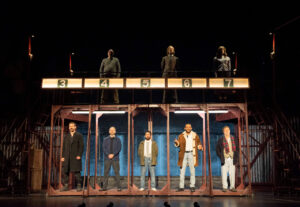
But it’s not all anger and pain. There is considerable humour. In a scene that had me laughing out loud, Chrissie’s wife Angie, played by Lauren O’Neill (who is outstanding in multiple roles) pretends not be home, and crawls back and forth on her knees, talking through the front and back doors to callers as well as answering the telephone. Just as comically tragic is Yosser’s meeting with the priests from the Catholic and Protestant churches, at either end of the ironically named Hope Street. Both conversations are an indictment of established religion. Seeing a similarity between free will and free markets, he says, ‘So God’s a tory.’ And, when the friendly Father says ‘Call me Dan’, he speaks the much-anticipated line ‘I’m desperate, Dan’.
The rest of the cast are faultless, and take on a number of roles but I’ll make particular mention of Dominic Carter who plays theshady builder Molloy and Jamie Peacock as the hapless benefit fraud investigator.
An article in the excellent programme talks about the ‘current political parallels’ but they are not always easy to grasp. It’s not that the plight of many working class people under Margaret Thatcher’s Conservative government wasn’t tragic. Traditional industries were decimated in her relentless battle against the unions, and the lives of the people employed in them destroyed. It’s just that it’s a long time ago. There is still the gap between rich and poor, maybe even getting greater, and benefit cheats are still demonised while corporation tax evaders are virtually ignored. I imagine the modern day equivalents of those Boys from the Blackstuff being employed in low wage and zero hours jobs fulfilling our orders in vast warehouses or delivering takeaways on bikes to our homes, as part of a non-unionised service economy.
Perhaps it’s in the treatment of people who need help not demonisation that the stories most resonate today. Sadly the play tries to cram too many stories into the time available. As a result, we lose some of the sympathy that we might otherwise have felt for these lost boys, had we had the chance to get to know them better. Nevertheless, it is a powerful drama, extraordinarily well acted.
Boys From The Blackstuff opened at Liverpool’s Royal Court, before transferring to the National Theatre, and then the Garrick where it can be seen until 3 August 2024. Tickets are available from thegarricktheatre.co.uk/tickets
Paul was given a review ticket by the producers.
Click here for other critics’ verdicts on Boys From The Blackstuff (and you can add your own)
Follow Theatre Reviews With Paul Seven on Instagram, X, Threads, Mastodon and Facebook.
Click here to watch this review on the YouTube channel Theatre Reviews With Paul Seven
